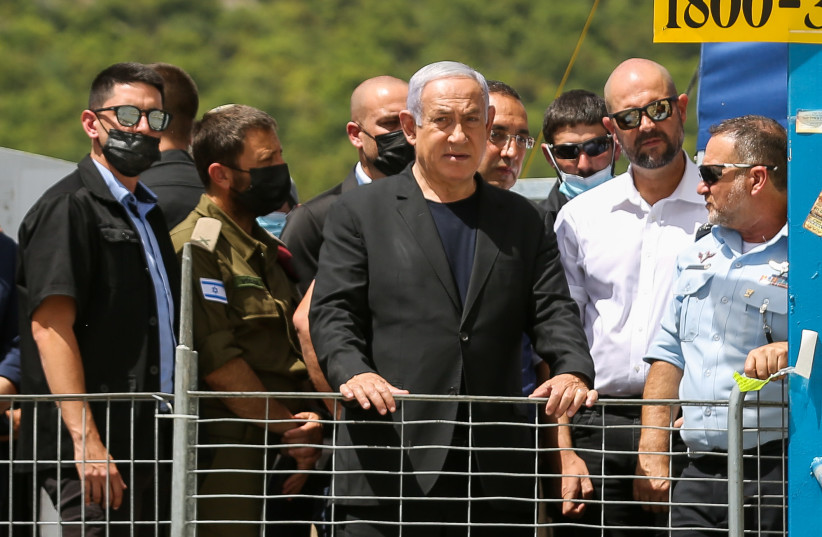The ongoing testimonies in the commission investigating last year’s Meron disaster – where 45 people lost their lives when the temporary construction collapsed at the Lag Ba’omer celebration causing a stampede – are heartbreaking, not least because the tragedy was utterly preventable. Three weeks later, two men were killed and hundreds injured when new bleachers collapsed during a Shavuot celebration at the Karlin Hassidic community synagogue in Givat Ze’ev.
As the Maccabiah is taking place again this year, we also remember the four lives lost during the opening ceremony of the games in 1997, when the temporary pedestrian bridge over the Yarkon River collapsed as the Australian delegation was crossing.
Sadly, the news of construction workers falling to their deaths at sites where the required safety measures have not been implemented has become almost commonplace.
There is a precept in Judaism that anyone who saves a life is as if they saved the entire world. The obvious concept behind this is the belief that every single life counts and is a world in itself.
In Israel, taking security seriously is second nature. Huge amounts are invested in cutting edge defense systems, intelligence and preventative measures. Unfortunately, the country does not take the matter of safety as seriously.

Many tragedies are not acts of nature but are rather the result of negligence. Accidents occur because of the Israeli “smoh alai” (“trust me”) mentality, the blind belief that yehiyeh beseder – everything will be alright.
Think of the horrendous loss in the Nahal Tzafit disaster in 2018 when 10 pre-army preparatory program students died in a flash flood during the hike taking place despite flood warnings in the area.
There are also ongoing warnings of what will happen in the wake of an earthquake due to weaknesses of older construction. Some disasters are just waiting to happen.
The latest disaster
On Thursday, 32-year-old Klil Kimhi lost his life during a chilling incident when a sinkhole opened up under a swimming pool during a private party in Karmei Yosef, sucking the young man down into a subterranean tunnel. Kimhi’s body was retrieved after a complicated rescue operation that lasted four hours. He had been at the pool along with co-employees from the marketing company where he worked.
Footage from the party shows a whirlpool in the center of the pool and the pool floor collapsing, sucking down Kimhi and another party-goer who was able to save himself at the last moment. Other swimmers scrambled to get out of the pool as inflated pink plastic flamingos disappeared down the massive hole while party music continued to play in a disturbing image that has gone viral on social media.
The ongoing investigation indicates that the incident was not a bizarre, freak act of nature like a fatal flash of lightning. A proper survey of the area would have revealed the problematic caverns and tunnels that contributed to the development of the sinkhole. The pool construction should then have taken this into account. In addition, proper maintenance might have indicated an ongoing problem.
Safety is not a luxury. It is an essential part of the covenant between a government and its citizens. Irrespective of who heads it, the government must ensure that good, existing regulations are enforced, invest in safety inspectors and follow up with legal procedures when necessary.
But ordinary citizens must also act sensibly, in accordance with safety procedures. The time to take responsibility is before a disaster takes place to prevent it, not after yet another avoidable tragedy. Safety is no less important than security.
The problem is that our country does not have any role models for how this should work. On Thursday, former prime minister Benjamin Netanyahu told the commission that had he known about the impending disaster, he would have taken action. ”I cannot take responsibility for something I did not know,” Netanyahu said.
This is ridiculous. Of course you can be responsible for something you don’t directly know about but that happens under your watch and should have therefore known about. Netanyahu didn’t know because he didn’t care.
Being responsible is doing your best to ensure disasters don’t happen. Did that happen in Meron, Nahal Tzafit or at the pool in Karmei Yosef?
This is what needs to change.
